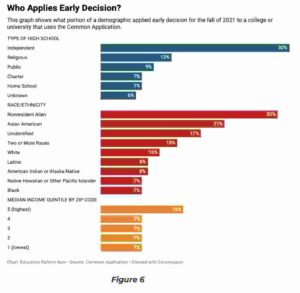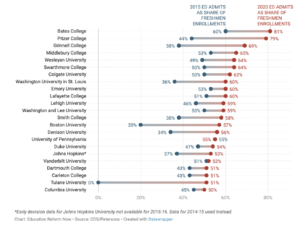Does Early Decision make college admissions less fair?
With the recent Supreme Court hearings on whether race can be considered in the college admissions process, fair admissions are at the forefront of public discourse. A recent policy brief produced by Education Reform Now highlights another area of possible reform: Early Decision programs.
Benefits of Early Decision
It’s no secret that applying early decision can offer benefits to applicants—but do early decision programs level the playing field for students from all backgrounds? Education Reform Now’s policy brief analyzes Early Decision programs, arguing that Early Decision “makes college admissions less fair and closes off opportunities to underrepresented students at highly selective schools.”
Education Reform Now Policy Brief
The policy brief looked at 2021 applications to over 900 universities. Its key findings include that students who attended independent private high schools were more than 3.5 times likely to apply ED than public school students and applicants from the wealthiest zip codes were more than twice as likely to apply ED as all other applicants were. In addition, the report found that international applicants were almost three times more likely to apply ED than US residents, and Asian Americans were three times more likely to apply early decision than Black applicants.

The Development of Early Decision
Early decision began in the 1950s, as a way for colleges to minimize risk that admitted students might matriculate elsewhere. Students could apply early in November, receive a decision in mid-December and potentially receive admission but on the condition that they would only apply to one school early, and they would matriculate there if they received admission. Come 1960, over 180 schools had created ED application option. After the development of Early Decision programs came the creation of Early Action, which mirrored Early Decision programs in its structure, except admission was non-binding. There has also been the development of Early Decision II—a second deadline in January for students.
Concerns About Early Decision
However, the development of early decision came with concern, because many began to worry that it would become too hard to receive admission in the regular process. People were quick to highlight the how this new system could reward the students with the most access to resources, and hurt everyone else. In response, several universities stopped offering Early Decision program in the early 2000s, but then reinstated their programs just years later. Colleges could not resist the allure of the programs: “Although early decision was packaged from the start as a benefit for students, the biggest beneficiaries are the colleges themselves.”
Why Offer This Program?
So, why do colleges offer early decision? Early decision allows for schools to “lock in students who are institutional priorities” including recruited athletes, and children or grandchildren of alumni. It can also drive down a school’s admit rate, and lock in tuition revenue. Most schools don’t offer early decision, given it is costly and resource-intensive to have two or more admissions reviews (seven out of eight four-year universities offer it.) But many highly selective private colleges do. What’s more: in the last five years, there has been a trend of these schools increasing their reliance on early decision and admitting more of their incoming class through it.

Education Reform Now’s policy report writes that, “The greatest threat early decision poses to equity in college admissions is not its expansion across universities but within them, as colleges that provide an ED option lean into it and enroll half or more of their class through a pathway that is favored by wealthy students who receive high levels of support throughout the college admissions process.”
The report argues for banning the use of early decision universally, requiring institutions that offer ED to meet the full financial need of applicants (so that they are not bound to something they cannot afford) and lastly, improving the awareness of the benefits of early decision by improving college and career counseling.
Questions About College Admissions
On that last point of improving awareness? That’s what we’re here for at Moxie. If you have any questions on Early Decision, don’t hesitate to reach out.
Share this article

Follow us
A quick overview of the topics covered in this article.
Latest articles
Reading Time : 2 mins
Reading Time : 3 mins
Reading Time : 1 mins




